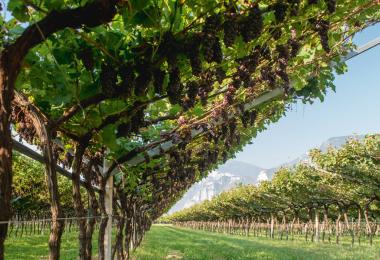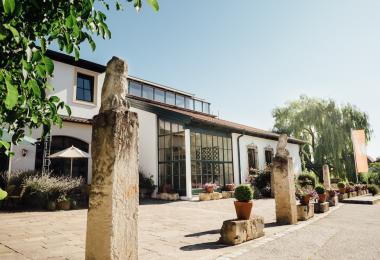Grapes originally cultivated in France but extinct since the Phylloxera epidemic in Europe are still being grown at the Yunnan Red Wine Company in China. The grapes have beautiful names like Crystal, French Wild and Rose Honey, and are believed to be descendants of vines devastated by the Phylloxera louse from the mid 1860s to the mid 1890s.
French missionaries introduced these varieties to Yunnan, the country’s most southerly mainland province, about two centuries ago, and it is the only place they are now grown. The Chinese also introduced clones of these grapes from Indonesia and Vietnam in the 1950s, as did missionaries from the Shangri-La region in the north of Yunnan province.
The company
The Yunnan Red Wine Company is based in Mile, near Yunnan’s capital of Kunming. It was founded in 1984 as a state-owned enterprise but ran into trouble financially and closed for a decade until 1997 when a group of Hong Kong business people took it over. It is understood they paid 6m yuan ($1m). The estate has since flourished.
CEO Dr Wu Kegang has turned the Yunnan Red Wine Company into the largest winery south of the Yangtze River; in August 2012, the China Daily reported that the company’s revenues reached 400m yuan ($62.9m) in 2011, up 10% on the previous year.
Shan Shumin, winemaker and general manager, said the winery had made huge efforts to improve quality. In the 1980s, Yunnan wines had a poor reputation because they were diluted with water to increase production. “Now we have high standards, a very hygienic production process, and we guarantee the quality of the fruit.”
Vines are planted on a plateau at about 1,800 metres, making it one of the highest vineyards in the world. It is located close to the Tropic of Cancer, at 25 degrees north latitude. Cool nights from the high altitude balance the high temperatures associated with being so close to what is considered beyond the extreme limit of grape viticulture in the northern hemisphere.
Yunnan Red produces about 10m bottles a year and almost all are sold in southern China. Shan Shumin said wines were distributed locally because of logistical restraints; the roads in the area are so narrow and windy that it is impossible for trucks to navigate them. Wines are distributed in tiny wagons, sometimes pulled by horses.
Staff come from a range of ethnic minorities as well as majority Han – China is about 92% Han. Of the 56 ethnic minorities formally recognised in China, 51 are represented in Yunnan (and 15 live exclusively there). Shan Shumin said the phoenix on the vineyard’s label was an acknowledgement of the province’s ethnic minorities.
Locally adapted
Yunnan is ideal for grape cultivation provided winemakers choose the right grapes, and grapes like Crystal and Rose Honey have adapted to local weather conditions. Rose Honey, also sold as a table grape, is the most planted variety.
In 1999 Dr Wu Kegang and Chen Yong published an academic paper proving Yunnan plateau was an “excellent grape growing area”. The paper – “Why grapes grow well in Yunnan close to the Tropic of Cancer” – won an award for excellence at the sixth Chinese National Symposium on Viticulture.
The paper says soils in Yunnan’s valleys are rich in trace elements and minerals that help grapes grow, and strong ultraviolet light from the high altitude restricts diseases. “Fresh air, clean water and no fertilisers or pesticides make grapes on Yunnan plateau a pure, environment-friendly product,” they wrote.
Professor Li Demei at Beijing University of Agriculture believes Yunnan offers the best conditions in China for making fine wine. The province is so warm that it does not need to employ the expensive practice of burying vines each year to protect them from the winter cold, as happens in much of the rest of the country.
A taste of the 2008 Rose Honey shows how the grape got its name: it smells of rose and honey. Despite its age the wine still had good acidity and structure, the latter the result of time in new and older French and American oak. The 2008 French Wild was more tannic, though those tannins were soft. It tasted like a Bordeaux blend – black fruits and cassis. The 2011 Crystal tasted like a ripe Sauvignon Blanc.
This part of Yunnan has a rare beauty and the view from the winery is magnificent. Caressed by balmy breezes, it sits atop a hill looking down a long valley, with a view of the vineyard’s 4,000 ha of grapes. The winery also buys grapes from local farmers.
A generation ago a church was built about five kilometres from the main buildings to acknowledge the vineyard’s early links with French missionaries – a rare event given the wide range of ethnicities in the province and the state’s policies towards religions. The church’s red roof and white walls stand out against the green hills. Like the vineyard, it is a reminder of the past.








